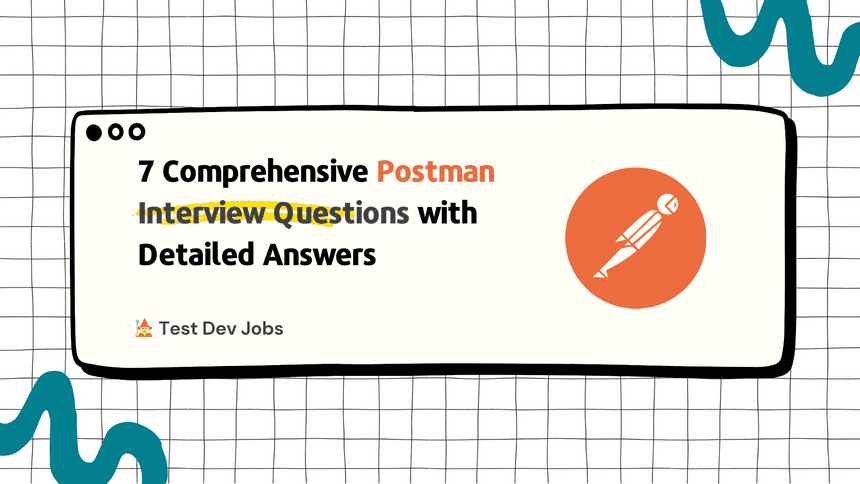
API testing is a crucial aspect of modern software development, and mastering tools like Postman can significantly enhance a tester's efficiency. If you're preparing for a Postman-related interview, you've come to the right place. In this article, we'll explore seven in-depth interview questions related to testing with Postman, along with comprehensive answers to help you showcase your expertise. Let's dive in!
1.How do you handle authentication in Postman, and what are the common authentication methods supported?
In Postman, handling authentication is essential for testing APIs securely. Common authentication methods include:
- API Key: Attach the API key to the request headers.
- OAuth 2.0: Postman supports OAuth 2.0 flows, allowing you to obtain and use access tokens.
- Basic Auth: Include the username and password in the request headers.
2.Explain the significance of environment variables in Postman and how do you use them in your testing workflows?
Environment variables in Postman are crucial for dynamic and reusable testing. They allow you to parameterize requests and manage variables like URLs, tokens, and user data. Using environment variables enhances scalability and makes it easier to switch between testing environments, such as development, testing, and production.
3.Can you elaborate on how Postman Collections contribute to efficient API testing, and how would you structure a test suite within a collection?
Postman Collections are a powerful feature for organizing and executing API tests systematically. A well-structured test suite within a collection includes:
- Folder Organization: Group related requests into folders for better organization.
- Request Chaining: Leverage the output of one request as input for another, ensuring sequential execution.
- Variables Usage: Utilize variables for dynamic data and to enhance reusability.
4.Discuss the role of Pre-request Scripts and Tests in Postman. Provide examples of scenarios where you would use each.
- Pre-request Scripts: These scripts run before a request is sent, allowing you to dynamically modify request parameters. For instance, you can use a pre-request script to generate a timestamp or calculate a hash before sending the request.
- Tests: Postman Tests run after a request, enabling you to validate the response. For example, you can check the response status code, specific JSON values, or headers to ensure the API behaves as expected.
5.How do you handle data-driven testing in Postman, especially when dealing with large datasets or iterations?
Data-driven testing in Postman is efficient using the built-in data editor and CSV/JSON file support. You can create data files with different test scenarios, and then use Postman's data variables to iterate through the data during test execution. This ensures comprehensive testing with various inputs.
6.Share your approach to handling API versioning in Postman, and how do you ensure backward compatibility during testing?
API versioning is crucial for maintaining compatibility as APIs evolve. In Postman, you can manage versions through URL parameters or headers. To ensure backward compatibility during testing:
- Create Test Suites: Include tests that validate responses for both current and previous versions.
- Monitor Deprecation Notices: Stay informed about deprecated features and update tests accordingly.
7.How can you leverage Postman Monitors for automated API testing, and what benefits do they offer in a continuous integration/continuous deployment (CI/CD) environment?
Postman Monitors automate the execution of collections at scheduled intervals. This is invaluable in a CI/CD environment for:
- Regression Testing: Detect and address issues early in the development pipeline.
- Performance Monitoring: Track API performance over time to identify potential bottlenecks.
- Integration Testing: Validate end-to-end functionality in a production-like environment.
Conclusion:
Mastering API testing with Postman is a valuable skill in today's software development landscape. These interview questions and answers aim to help you showcase your expertise and proficiency in utilizing Postman for efficient and effective API testing. Keep practicing and refining your skills to excel in your Postman-related interviews. Good luck!
Never miss exciting Software Testing Jobs.
Join 500+ people getting weekly digest of new testing career opportunities 👇
No spam, ever. We'll never share your email address and you can opt out at any time.